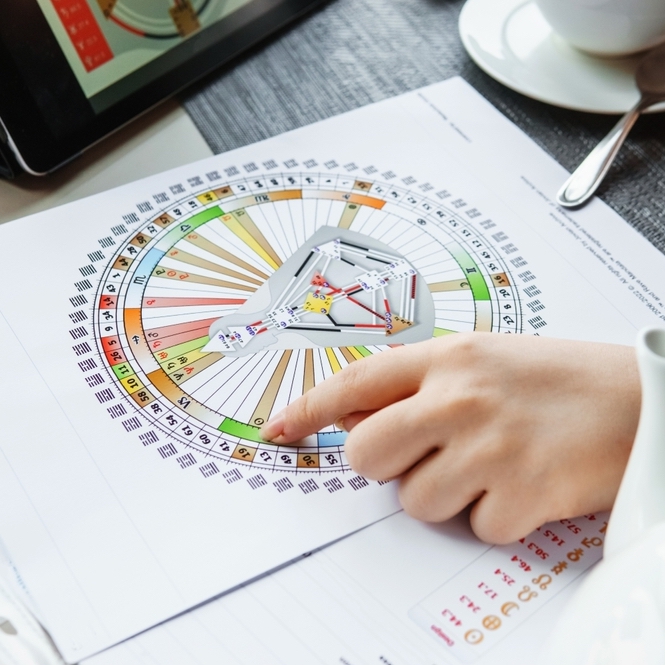5 Minute Read
Words by Kate Lucey
Share this article…

Whether your children are moving out and away or just starting school full-time, their sudden absence can present some challenging feelings.
WYLDE MOON speaks to a psychologist and some parents with experience to find out how to manage these complicated emotions.
Empty Nest Syndrome refers to the complicated emotions that parents often experience when their children leave home. While it’s not a clinical disorder or medical diagnosis, the feelings of loss, sadness, loneliness and grief can be significant.
Of course, we want kids to grow up and lead lives of their own, and getting them ready to a ‘release point’ is all part of it, but that doesn’t do anything to stem the emotional mélange that can come with it.
Part of you is proud and grateful that they have come so far, the rest is wondering where all the years went. Alongside feelings of emptiness can be anxiety, worrying about whether they are safe and what on earth they are doing. Whether they’ve gone off to nursery, big school or uni it is a huge change to your daily routine and for some parents it means heartfelt tears while others feel they have a chance to breathe and discover themselves again.
“Having a child leave home is a powerful experience – for both them and you,” Beverley Blackman, a psychologist from Counselling Directory, told WYLDE MOON.

“I’d always run my own business from home, but it always had to work around my kids and their routines – now I had my own schedule.” – “Empty nest” parent
“Empty Nest Syndrome is one of those things that tends to evoke a lot of feelings – and those feelings can be conflicting in themselves, which can be confusing. But it’s absolutely normal to experience strong feelings at a time when your child leaves home. Perhaps you feel redundant and bereft; life has no purpose, you don’t know what to do with your time, you are sad and anxious and you miss your child desperately. Perhaps you feel like a weight has been lifted; you have less responsibility, more time for yourself, the ability to engage in things that you couldn’t do before, and feel like you have a new lease of life.
“If you end up feeling guilty that you are not feeling overwhelmingly sad about your child leaving home, remember that both sets of feelings are normal and above all, valid. After all, you brought your child into the world and cared for them until this point – but parenting is not an easy, entirely pleasure-based gig. It’s hard work. It’s okay to feel that you welcome some more time for yourself, as well as to acknowledge sadness and the change that has happened, and to recognise that you miss them. Both sets of feelings are absolutely normal.”

Whatever you’re feeling, it’s totally normal and valid
Indeed, so many parents seem to feel a mixture of both grief and relief. When WYLDE MOON spoke with a group of parents who have all gone through Empty Nest Syndrome, the common theme in the discussions (apart from the energy bills that had halved and the mess that had disappeared) was accepting that just as this is a new phase of life for your children, it’s also very much a new phase of life for you; you’re not being left behind, you’re being given new freedom for yourself as an individual, and if your children are starting university, this is the beginning of a new relationship with them as adults.
“When my children went to university, I hated not hearing from them,” one parent told us. “But I soon learned that no news is good news – they’re living their own lives.”
“I feel like them leaving home is the end game,” said another. “As a parent, it is your job to raise your children to leave. You do your very best to support them and teach them the best you can to function in society as their own person. It’s not my job as their parent to harass them to phone me or visit me, but equally if they choose to then that’s great. I don’t own them, they’re their own people doing their own thing and they know that I’m here to support them whenever they need me.”
“Just as this is a new phase of life for your children, it’s also very much a new phase of life for you”
This is all great, but what if you do really feel bereft? “I always thought I had prepared myself mentally for my children to leave, after all my job was to ‘give them wings and watch them soar’,” one mother told WYLDE MOON. “I told myself I had plans for after, things I wanted to do for me, and that I wouldn’t be sat around pining, but when it came to it I was shocked by how bereft I felt, how much it impacted on my identity as a mum of four and how much it hurt not having them altogether.
“I suddenly felt like nobody needed me anymore,” said another woman. “It’s just such a big change after almost 20 years of always having children there to talk to and cook for and drive here and there, that when they leave you feel as if you have no purpose in life anymore until you readjust and move on to other things. I think especially being on my own as a single mother, I felt like the loss was intense grief.”

“I was looking forward to spending more time with my husband.” – “Empty nest” parent
Beverly explains that if you’re experiencing similar struggles, “perhaps the best way through this is to remind yourself to feel both proud of your child, and proud of yourself. This will evoke some positive feelings – you have equipped your child to take their next steps out into the world, and they’re ready and well-prepared. Remind yourself that you haven’t lost them altogether; things are just a little different. Your child will, in all likelihood, stay in touch, and you will still be playing a part in their lives – just a slightly less active one.”
Practical advice from other parents
But what could you do right now, or this week, to help yourself move through the process? Here are the most helpful tips from the parents we spoke to.
- “What helped me was decluttering; I got rid of all the baby things and reframed it as time to focus on me and how mothering big kids is a different era.”
- “Getting a dog helped when my kid moved out. I mean, it wasn’t a replacement – but it does tick some of the ‘caring and daily structure’ boxes of having children at home.”
- “Take a moment to enjoy that you don’t need to work out what to feed them for the entire week and you can eat all the things that you love but they don’t, or that were too expensive to share!”
- “I felt intense loneliness when my children moved out, so I started an OpenUniversity course to keep myself busy and learn a new skill. It definitely helped, but in retrospect I should have adopted my dog sooner as it would have been way more fun.”
- “We got ourselves a kitten when my middle son went to university, partly to lift the spirits of his much younger brother. When our youngest goes off to uni, we’re toying with the idea of getting a camper van for more weekends away as a couple.”
- “When my girls moved out, I was happy that they’d become strong independent young adults ready to face the world. After nearly 29 years of having ‘children’ around, it’s amazing for my husband and I to have time on our own again. I love it.”
- “When my youngest was in full time school, I felt like I started to claw back bits of my life. I’d always run my own business from home, but it always had to work around my kids and their routines – now I had my own schedule.”
- “I thought I’d really miss primary school runs after years and three children – and I didn’t. I loved not having to run that gauntlet every day. Now I have no secondary school runs and I’m not missing them either!”
- “I was looking forward to spending more time with my husband, and not lying awake at night worrying until my girls came in from their nights out with friends. I hoped that our parenting up to this point would allow them to grow up safely while still enjoying themselves at university.”
- “I adopted two rescue puppies and started teaching English as a foreign language in a post-secondary business school a few hours a week, so I get a bit of ‘young person’ energy from that.”
- “I’m celebrating the fact that I won’t have to hide in the utility room when I want to eat chocolate biscuits.”
If these aren’t quite hitting the mark with you, then Beverly has more advice;
“You can focus more on your partner relationship if you are in one, as this will be going through an identity shift as well, and things that you may have bypassed or pushed away until you have more time can come to the fore. It’s a good time to widen your social circle, or spend more time with friends (who also may be experiencing the same sense of ’empty nest’).
“It’s a good time to plan ahead and think about all those things you wanted to do but never had the time to do, or that your children never wanted to do. While it may seem alien to do so, it’s important to put yourself first for a little while: your life can absolutely expand and grow further once your children have left home, and it’s helpful to find ways of pushing forward and experiencing new things, or travelling to new places, or meeting new people.
“If you are no longer working or work reduced hours, perhaps now is the time to look at volunteering roles or join some activity groups. It might be time to get a pet so that you have something in the house besides you. It’s a chance to forge a different identity and though it can be initially painful and confusing, it is an opportunity to set things up for yourself.”

What if the sadness doesn’t soften?
“If you are genuinely finding your child leaving home a very difficult experience and a low mood and anxiety persists for longer than several weeks, and you are starting to feel more and more shut down and unable to enjoy yourself or engage in normal day-to-day activities, this would be the point at which to seek some support from a therapist,” says Beverly.
“Shifts in identity can be difficult to negotiate and it’s good to have a place whereby those difficult, upsetting feelings can be explored and made sense of, and so you can understand what it is that is causing you to stay stuck, and how you can help yourself move forward.”
Share this article…





